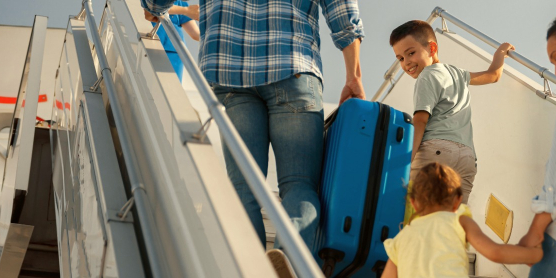
Emigrating to Argentina: Visa, Security, Costs & Climate
Emigrating to Argentina: Find out the most important information for your stay here
Get an overview of Argentina with its glacial lakes, pampas, and traditional grazing land of the famous cattle. The culture with its tango, music and culinary delights. In the large, cosmopolitan capital of Buenos Aires, Plaza de Mayo forms the center, surrounded by elegant 19th-century buildings, including the famous presidential palace Casa Rosada with its striking balcony.
Also in focus: political situation, health system and regional risks. Plus: Entry requirements for German citizens in check. This will help you make informed decisions for working and living in Argentina.
Facts about Argentina
Capital City
Buenos Aires
Population
46.23 million
Surface Area
1,073,364.00 mi² or 2,780,000 km²
Continent
South America
Official Language
Spanish
Currency
Argentine peso (ARS)
Emigrating to Argentina – an overview of the political system
- Presidential republic under Javier Milei (since 2023)
- Restricted freedom of the press
- Increased everyday crime in major cities such as Buenos Aires, Mendoza and Salta
Tip for emigrants: Choose your location consciously (safe barrios, short distances), subscribe to travel and safety advice, use the crisis preparedness list.
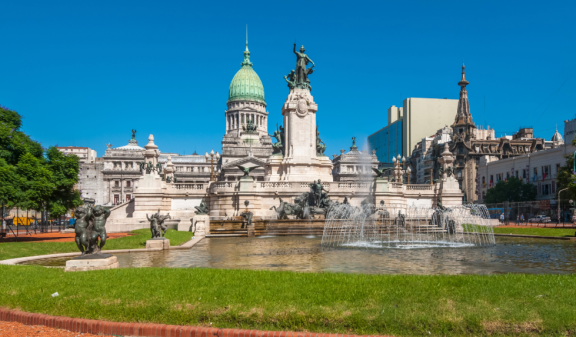
Argentina – a fast-growing economy?
- GDP (2023): $1,370 billion, but -1.6% growth
- Income distribution: Gini coefficient (2023) = 42.4 (100 = perfect equal distribution; 0 = maximum inequality)
- Major industries and commodities: lithium, copper, natural gas and oil production
- Good job opportunities in energy & construction, mining/lithium supplies, agribusiness, logistics, IT/shared services.
- One of the largest agricultural exporters in the world
- Cost: Cost of living significantly lower than in Europe, as local products and services are significantly more cost-effective
Tip for expats: Knowledge of Spanish is helpful, but indispensable for professional success.
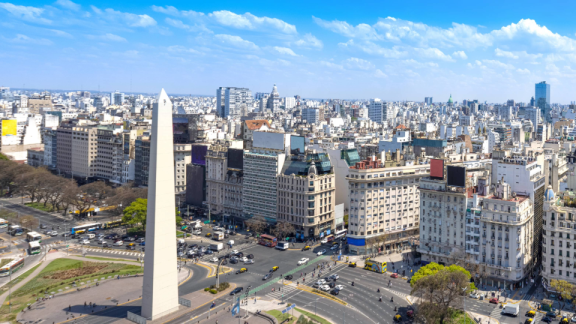
What is the health care system like in Argentina?
- Health care in three pillars: public, "obras sociales" (social security), private "prepagas". Private additional insurance is common for expats.
- Compulsory vaccination: none, but yellow fever recommended depending on the region (especially Misiones/ Corrientes)
- Ongoing dengue risk
Tip for emigrants: Clarify international health insurance before departure; Match routes against CDC/AA recommendations.

What is the climate like in Argentina? Weather, temperatures and seasons
The seasons in Argentina are mirror-inverted compared to us.
- The Argentine spring is in September, October and November
- The Argentine summer is in December, January and February
- The Argentine autumn is in March, April and May
- The Argentine winter is in June, July and August
- Basically, Argentina is warmest from November to March and coolest in June or July.
North: On the border with tropical rainforests of Brazil, Bolivia and Paraguay: tropical and hot
South: subpolar climate (fresh and mostly cool)
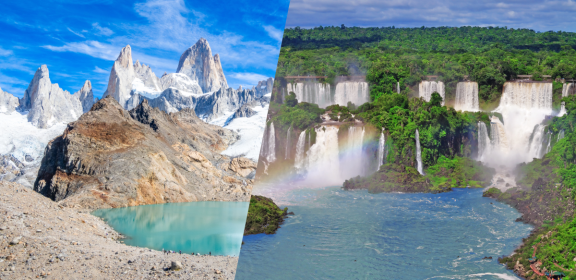
National holiday
Exposición Internacional del Centenario
Diversity in Argentina? – Religion, language, cuisine
- Religion: predominantly Christian/Catholic (approx. 63%); largest Jewish community in Latin America, approx. 1.5% Muslim
- Languages: Spanish (Rioplatense) dominates; regional varieties and minority languages spoken by the indigenous population
- Culinary: Asado (Argentine barbecue), empanadas (stuffed dumplings), mate; regional Andean, Atlantic and Patagonia cuisine
Tip for expats: Learn everyday Spanish and culinary culture (very meat-heavy) and use holidays actively for networking.

Argentinien – die Heimat des Tangos
Tango – an expression of passion, disappointed love, sadness, homesickness, and pain.
This world-famous dance originated between 1865 and 1895 in Argentina's capital city, Buenos Aires.
- Porteños (residents of Buenos Aires) grow up with it
- Machismo: the man always leads.
- Expression of one's own identity and of times gone by
- Now worldwide tango schools, cafes, and bars
Tip for expats: It's easy to make new contacts at regular tango events, such as competitions and festivals. Knowledge of Spanish is a big advantage.

Emigrate to Argentina - Entry Requirements
Entry is possible for German citizens with the following documents:
- Passport: Yes
- Temporary passport: Yes
- Identity card: No
- Temporary identity card: No
- Children's passport: Yes
Note: Validity at least recommended for the stay; visa-free up to 90 days of tourism. Airlines often check proof of health insurance.

FAQs for emigrating to Argentina
Where can I find relevant information about my country of entry and the entry regulations that apply there?
We have compiled destination country information as well as entry requirements and customs information for many countries in the Relocation Service section of our website and are constantly expanding this section.
Can I use my own container that I already own for the move with DACHSER & KOLB?
For every removal, which we at DACHSER & KOLB always offer as a door-to-door (full service) removal, a container is rented for the duration of the removal. We therefore do not offer the option of using your own container.
Who is responsible for my move abroad and the services I need there?
As a FIDI member, we work abroad with selected, long-standing partners who work in accordance with our service standards.
Are my removal goods insured in the event of damage?
For every overseas move, we naturally cover transportation insurance at current value for the used household goods and personal belongings
What types of transportation do you offer for overseas relocation?
It is generally possible to carry out overseas removals via air freight or sea freight. In the case of sea freight, it is possible to ship the removal goods as additional cargo (“LCL shipment” with Liftvan) or with a container (FCL shipment in 20 feet, 40 feet or 40 feet high cube). We will be happy to discuss which option is best for you in a personal consultation.
When and how must the move be paid for and what is the payment deadline?
You will receive an invoice a few weeks after placing the order and pay the full amount directly in advance.
Do I have to pay taxes and customs duties on my removal goods?
Removal goods can be imported tax and duty-free into most countries if you have a valid residence permit. We will be happy to check the options for importing the removal goods for your desired destination country in a personal consultation.
Are you interested in moving to Argentina or another destination country?
Then do not hesitate and contact us today.
Sabrina Klier
Customer Service & Sales - AIR & SEA


